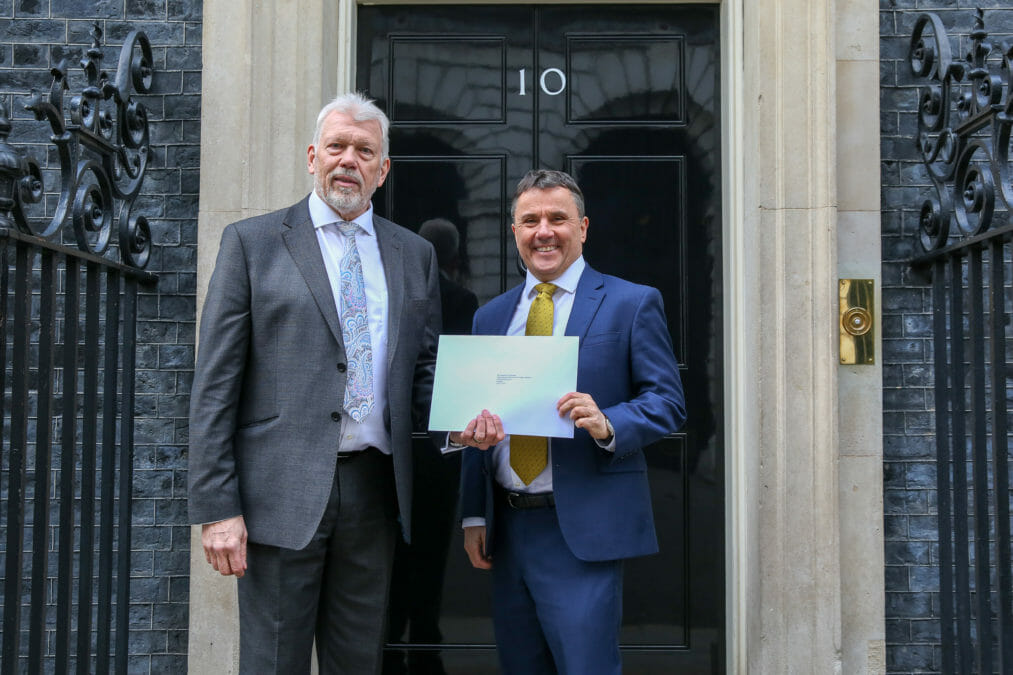Challenging public procurement
It is self-evident that UK public sector contracts should be cost-effective, delivered in a timely manner, and provide good value for the taxpayer. Despite this, waste and extravagance are often the words most associated with public sector procurement, and it is not hard to understand why.
There have been numerous examples of companies failing to deliver on public sector contracts, from the £237 million G4S security contract that failed to provide the security staff needed for the 2012 Olympics, to HS2 running billions of pounds over budget and years behind schedule.
Addressing the factors that cause these wasteful problems is critical for the UK’s future success. The government may have declared it has “turned the page on austerity”, but the public penny is still precious and needs to be accounted for. If the government is seen to be running a tight ship in these uncertain times, it will also go a long way in winning the public’s trust, and the confidence of UK plc. Only then can we ensure the UK remains one of the world’s most attractive destinations for foreign investment, therefore securing its efficiency, effectiveness and competitiveness on the world stage.
If the government is truly serious that it wants to improve departmental performance and show that the UK is “open for business”, it must ensure that large contractors are accountable and transparent. The only way to achieve this is by levelling the playing field for small and medium-sized enterprises [SMEs], to ensure they have a fair crack at public sector contracts. By encouraging SME competitiveness and innovative thinking, entrepreneurial minds will play a key role in recognising and solving problems in public service provision.
Helping traditional industry SMEs embrace digital technologies
Taking the message to No10
Therefore, when Boris Johnson’s chief adviser, Dominic Cummings, published a blog post in January asking for “weirdos and misfits” to work with him to find creative ways to improve the performance of the civil service, our board felt it appropriate to step forward. After all, public sector procurement accounts for about a third of public spending, but is typically only newsworthy when a large contract supplier spectacularly fails. This ignores the fact that, day-to-day, the British taxpayer is often not getting the value for money they expect or deserve.
In response, Tony Irving, chief operating officer of CloudStratex, and Brad Day, our community director, personally delivered a letter to Mr Cummings at No. 10, outlining our belief that the huge waste of public funds going into failed IT projects must be challenged, and that the government must:
• Initiate a fundamental review on IT projects that are currently underway, whilst looking at ways of driving better value
• Do more to prevent vendors from wasting money and overcharging
• Provide greater support to businesses to understand “how” to adopt technology effectively, as well as leverage next-generation services
A perfect example of the importance of this is demonstrated by research from the Institute of Global Health Innovation that revealed almost a quarter of hospitals still use paper records, and those which have switched to IT systems have no standard – almost two dozen different systems are being used. It’s a farcical situation that could easily be remedied with the right minds and approach.
SMEs are speaking, the government just needs to listen
While we have put our best foot forward, there is also an untapped vein of tech SMEs like us, characterised by their creative thinking and desire to challenge the status-quo, who are committed to revolutionising public procurement.
Unfortunately, the government has yet to receive the memo. Trade association techUK, found that 68% of respondents to its fourth annual Govtech SME Survey felt the government had “not acted effectively on its commitment to helping small businesses break into the public sector market”. In fact, “only 37% of respondents said they felt the government’s 33% SME target is achievable in the next five years”. At the same time, the proportion of public procurement spending going to strategic suppliers – companies that receive over £100 million in revenue per year from government contracts – has grown significantly over the past five years, according to the Institute for Government (IfG).
UK tech entrepreneurs’ advice
While start-ups may feel the government has left them out in the cold, they have received a decidedly warm welcome from venture capitalists. Last year they invested £10.1 billion in new tech enterprises – a “£3.1 billion increase on 2018’s”, according to the Digital Economy Council. This surpassed growth in all other countries, including the US and China. If shrewd venture capitalists see the potential of our savvy SME start-up base, and are investing record amounts into them, surely the government can increase its current spend with SMEs beyond its 33% by 2022. After all, in an uncertain post-Brexit world, our SMEs will be instrumental in ensuring the UK retains its competitive edge. Just give us the opportunity!








